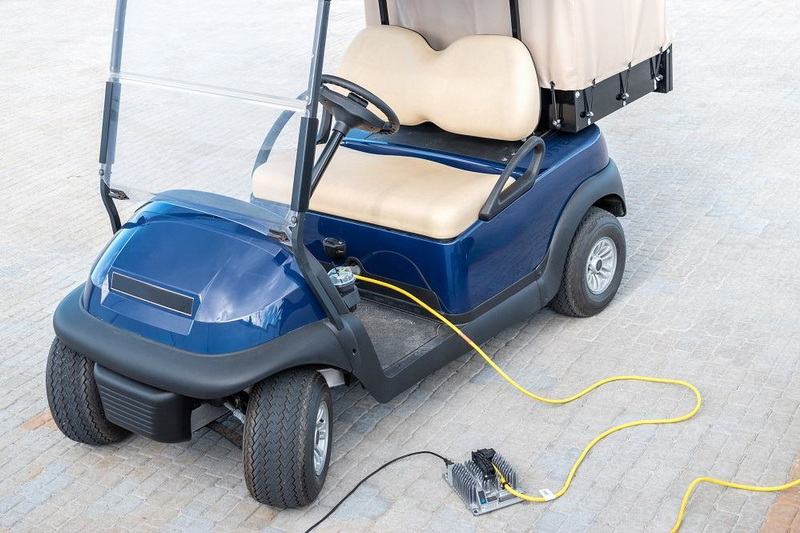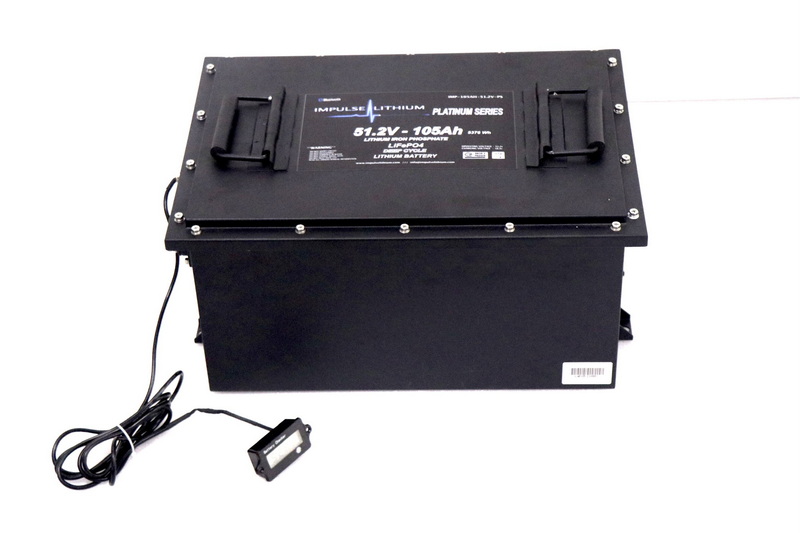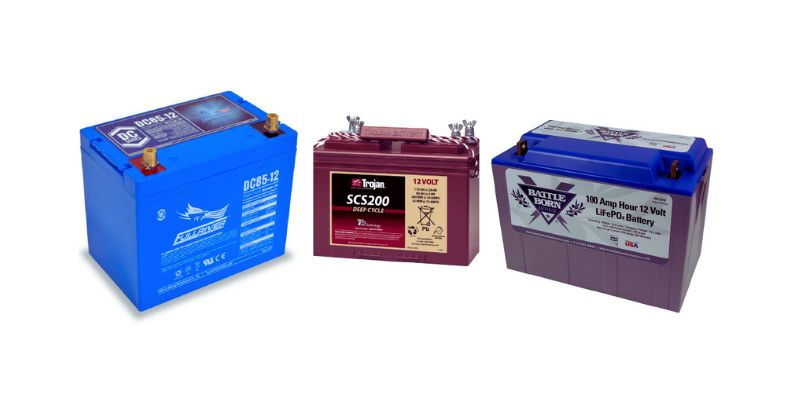Content Menu
● Understanding Electric Golf Cart Batteries
>> Types of Batteries
● How Often Should You Charge Your Golf Cart?
>> After Every Use
>> Daily or Every Few Days
>> Monthly Maintenance Charging
● Charging Time
>> Tips for Efficient Charging
● Signs Your Golf Cart Needs Charging
● Battery Maintenance Tips
>> Regular Inspection
>> Equalization Charging
>> Store Properly
● Additional Considerations for Electric Golf Cart Users
>> Environmental Factors
>> Upgrading Your Battery
>> Using a Battery Monitor
● Conclusion
● Frequently Asked Questions
>> 1. How long does it take to charge an electric golf cart?
>> 2. Can I leave my golf cart plugged in all the time?
>> 3. What should I do if my golf cart batteries are not holding a charge?
>> 4. How can I extend the life of my golf cart batteries?
>> 5. Is it better to use lead-acid or lithium-ion batteries for my golf cart?
Electric golf carts have become increasingly popular for both recreational and practical uses. Whether you're using them on the golf course, in gated communities, or for personal transportation, understanding how to properly charge your electric golf cart is essential for maintaining its performance and extending the life of its batteries. In this article, we will explore the best practices for charging electric golf carts , how often you should charge them, and tips for battery maintenance.

Understanding Electric Golf Cart Batteries
Electric golf carts typically use lead-acid batteries or lithium-ion batteries. Each type has its own charging requirements and characteristics. Lead-acid batteries are the most common and are generally less expensive, but they require more maintenance and have a shorter lifespan compared to lithium-ion batteries. Lithium-ion batteries, while more expensive, offer longer life, faster charging times, and require less maintenance.
Types of Batteries
1. Lead-Acid Batteries: These batteries are often used in golf carts due to their affordability. They come in two main types: flooded lead-acid and sealed lead-acid (AGM or gel). Flooded lead-acid batteries require regular maintenance, including checking water levels and cleaning terminals.
2. Lithium-Ion Batteries: These batteries are becoming more popular due to their efficiency and lower maintenance needs. They charge faster and can last significantly longer than lead-acid batteries, making them a great investment for frequent users.
How Often Should You Charge Your Golf Cart?
The frequency of charging your electric golf cart depends on several factors, including how often you use it, the type of battery, and the distance you travel. Here are some general guidelines:
After Every Use
For most users, the best practice is to charge the golf cart after every use. This is especially important if you frequently use the cart for long periods. Charging after each use helps to ensure that the batteries remain at optimal levels and reduces the risk of deep discharging, which can damage the batteries.
Daily or Every Few Days
If you use your golf cart daily, it's advisable to charge it every day. However, if your usage is less frequent, charging every two to three days may be sufficient. Always monitor the battery level; if it drops below 50%, it's a good idea to charge it.
Monthly Maintenance Charging
Even if you don't use your golf cart often, it's important to perform a maintenance charge every 30 to 60 days. This helps to keep the batteries healthy and prevents them from discharging too much, which can lead to sulfation in lead-acid batteries.

Charging Time
The time it takes to charge an electric golf cart can vary based on the battery type and its current state. Generally, it takes about 4 to 8 hours to fully charge a golf cart battery. Here's a breakdown:
- Lead-Acid Batteries: Typically take longer to charge, around 6 to 8 hours, depending on the charger and battery condition.
- Lithium-Ion Batteries: These can charge much faster, often in 2 to 4 hours, making them a convenient option for regular users.
Tips for Efficient Charging
1. Use the Right Charger: Always use the charger that is specifically designed for your golf cart's battery type. Using the wrong charger can lead to overcharging or undercharging, which can damage the batteries.
2. Charge in a Cool, Dry Place: Heat can affect battery performance and lifespan. Try to charge your golf cart in a cool, dry area to ensure optimal charging conditions.
3. Avoid Overcharging: While it's important to keep your batteries charged, overcharging can lead to damage. Most modern chargers have built-in features to prevent overcharging, but it's still good practice to unplug the charger once the batteries are fully charged.
Signs Your Golf Cart Needs Charging
Knowing when to charge your golf cart is crucial for maintaining battery health. Here are some signs that indicate it's time to charge:
- Reduced Speed: If your golf cart is not reaching its usual speed, it may be a sign that the batteries are low on charge.
- Dim Lights: If the headlights or dashboard lights appear dim, it's a clear indication that the battery is running low.
- Frequent Stops: If you find yourself needing to stop more frequently during your ride, it may be time to charge the batteries.
Battery Maintenance Tips
Proper maintenance of your golf cart batteries can significantly extend their lifespan. Here are some essential maintenance tips:
Regular Inspection
Check your batteries regularly for any signs of corrosion or damage. Clean the terminals and ensure that the connections are tight. For flooded lead-acid batteries, check the water levels and top them off with distilled water as needed.
Equalization Charging
For lead-acid batteries, performing an equalization charge every few months can help balance the charge across all cells. This process involves charging the batteries at a higher voltage for a short period to ensure all cells are equally charged.
Store Properly
If you plan to store your golf cart for an extended period, make sure to charge the batteries fully before storage. Disconnect the batteries and store them in a cool, dry place. It's also a good idea to check the charge level every month and recharge if necessary.

Additional Considerations for Electric Golf Cart Users
Environmental Factors
The environment in which you operate your golf cart can also affect battery performance. Extreme temperatures, both hot and cold, can impact battery efficiency. In hot weather, batteries may discharge faster, while cold weather can reduce the overall capacity. If you live in an area with extreme temperatures, consider investing in battery insulation or a temperature-controlled storage solution.
Upgrading Your Battery
If you find that you are frequently charging your golf cart or that the batteries are not holding a charge as well as they used to, it may be time to consider upgrading your batteries. Lithium-ion batteries, while more expensive upfront, can provide significant long-term savings due to their longer lifespan and reduced maintenance needs.
Using a Battery Monitor
Investing in a battery monitor can help you keep track of your battery's state of charge and health. These devices can provide real-time data on voltage, current, and overall battery health, allowing you to make informed decisions about when to charge and how to maintain your batteries.
Conclusion
Charging your electric golf cart properly is essential for maintaining battery health and ensuring optimal performance. By following the guidelines outlined in this article, you can extend the life of your batteries and enjoy a reliable and efficient golf cart experience. Remember to charge after each use, perform regular maintenance, and monitor your battery levels to keep your golf cart running smoothly.

Frequently Asked Questions
1. How long does it take to charge an electric golf cart?
Charging time can vary based on the type of battery. Lead-acid batteries typically take 6 to 8 hours to charge fully, while lithium-ion batteries can charge in 2 to 4 hours.
2. Can I leave my golf cart plugged in all the time?
While modern chargers are designed to prevent overcharging, it's best practice to unplug the charger once the batteries are fully charged to avoid any potential issues.
3. What should I do if my golf cart batteries are not holding a charge?
If your batteries are not holding a charge, check for corrosion on the terminals, ensure connections are tight, and consider performing an equalization charge. If problems persist, it may be time to replace the batteries.
4. How can I extend the life of my golf cart batteries?
To extend battery life, charge them regularly, perform maintenance checks, store them properly, and avoid deep discharges. Using a battery monitor can also help you keep track of their health.
5. Is it better to use lead-acid or lithium-ion batteries for my golf cart?
Lithium-ion batteries are generally more efficient, have a longer lifespan, and require less maintenance compared to lead-acid batteries. However, they are more expensive upfront. Consider your usage and budget when making a decision.











































